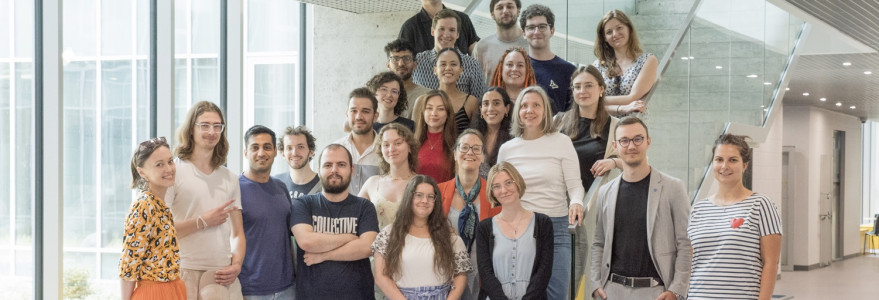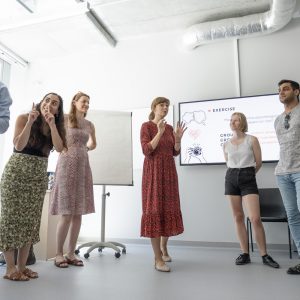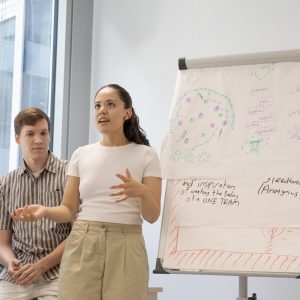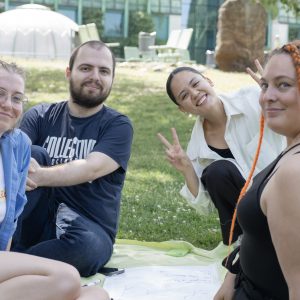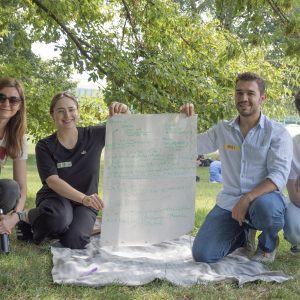The Volunteer Centre of the University of Warsaw organised the Summer Academy on Student Participation at the beginning of July, under the University Community Active Participation Project (UNICOMM). The event brought together over twenty participants from the UW and various foreign research centres.
The primary focus of the Summer Academy on Student Participation was to explore and develop strategies for creating more inclusive and engaging projects within the academic community. In a series of workshops and collaborative sessions, participants had the chance to share their practices and discuss:
- what contributes to the success of projects,
- how to implement and promote student campaigns,
- what motivates to engage and what is challenging,
- how to ensure psychological safety in teamwork,
- how the university can support and recognise student engagement,
- how to create projects with the international university community and working students in mind.
The outcome of the week-long meeting includes four video-tutorial scenarios that will be implemented by the Volunteer Centre of the University of Warsaw with the support of volunteers.
University Community Active Participation Project
UNICOMM is an international project carried out by the Volunteer Centre of the University of Warsaw, in cooperation with the University of Applied Sciences in Upper Austria (AT: Fachhochschule Oberösterreich), the European Students’ Union (Belgium), and Palacký University Olomouc (CZ: Univerzita Palackeho v Olomouci). The project is held under the auspices of the Erasmus+ Programme. The events are planned until the end of August 2025.
The main aim of the project is to identify the patterns and factors that support the incorporation of inclusive and active student participation, enhance student competences to allow them fully participate in the inclusive academic community, and create guidelines and recommendations concerning organisational structures of the European higher education institutions in the context of the uncertain times and rapid changes.
The outcome of the project will be new tools, which are expected to strengthen competencies and support active engagement of both international and working students. Identifying good practices for these students to engage in non-academic initiatives offered by the university will allow for an analysis presented in a report that summarises variables influencing the construction of an active and inclusive HEI community.
Details about the project are presented at www.wolontariat.uw.edu.pl.



